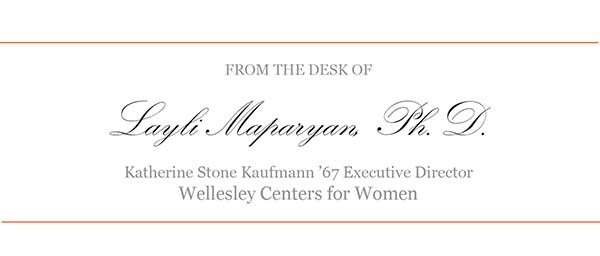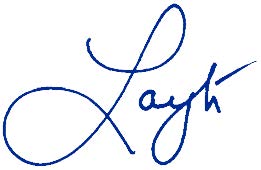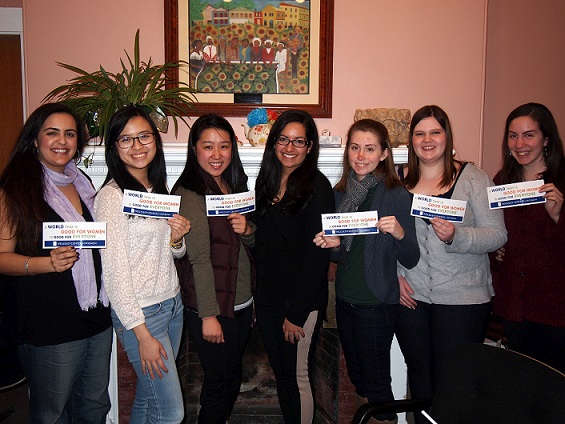More information about the major programs of Wellesley Centers for Woman can be found at the following web sites or main pages:
Senior Scholar
There were no projects found for this person or project.

HAPPY NEW YEAR, Friends!
I hope this moment finds you as filled with hope and possibility as I am. While last year was filled with accomplishments for us here at WCW, it was also a year of change and transition. Thank you for being a friend on the journey, every step of the way!
Against this backdrop, there were so many social and political issues lighting up our screens (whether computer, phone, or television) last year—everything from #BlackLivesMatter and #SayHerName, to Planned Parenthood, to the Syrian refugee crisis, to ISIS and the Paris terror attacks, mass shootings here in the U.S., and, of course, the beginning of the 2016 election cycle. It was a year without rest from the issues, a year that made us reflect even more deeply about our work and its purpose in the larger world. We are committed, along with you, to making a difference in the world in 2016.
I am glad that we at WCW have dedicated ourselves to such enduring issues as education, economic security, mental health, youth and adolescent development, and gender-based violence, because these topics are always relevant, and our work, as a result, can always inform positive social change—not only for women and girls, but also for their families and communities, in all their diversity, around the world. I’m so thankful that you stand with us in doing this work.
Over the next year, we’ll be showcasing how our special brand of women- and gender-focused research can inform the next President of the United States. In March—Women’s History Month—look for a special issue of our Women’s Review of Books that features recommended reading for the next President. As the year goes on and we inch closer to the election, look for more from our researchers and scholars as they share their policy recommendations for the next administration. Last but not least, stay tuned later in the year for an announcement about a related event that will occur early in 2017 …
In the months ahead, I can’t wait to share with you “the latest” from WCW—new research findings from our researchers, new project developments from our action programs, and news from my travels around the world and all the places I go to spread the WCW message, and, if I’m lucky, to meet you. Stay tuned via our website, social media, and eNews for these updates and more! 2016 promises to be a great year!
With gratitude, love, and peace,
Layli

Layli Maparyan
P.S. Your generosity is always needed and appreciated. Thank you.

The Wellesley Centers for Women (WCW) Student Ambassadors are a team of Wellesley College students dedicated to the purpose of building bridges between the Wellesley Centers for Women and the Wellesley College student body.
WCW Student Ambassadors will promote WCW at Wellesley College, gather information about student knowledge of and attitudes about WCW, mobilize and organize student participation in WCW public events, serve as a student focus group for the WCW Executive Director, assist with internal research about WCW, and contribute to the utilization of social media vis-à-vis WCW. Ambassadors will be expected to attend monthly meetings each semester.
"I decided to join the WCW Student Ambassadors my first year because I happened upon the WCW website and was incredibly interested in WCW's commitment to research and action. My favorite part about these two years has been getting to work closely with the WCW staff who I would not otherwise have gotten the chance to personally meet. I particularly enjoyed the event we held this semester (Spring 2014), about the power of data for social change and hearing how each senior research scientist made tangible impacts in their work.
It is so important that WCW and Student Ambassadors bridge the connection between the Centers and Wellesley students. So many students are interested in social change and activism, but now many have heard about the Centers to know how to best bring about that change. I can personally say that witn my involvement as an Ambassador and research intern with Dr. Linda Charmaraman this year and next year, I am truly delving into how research can directly influcence other people and in what form this change could take.
Wellesley students should join the Student Ambassadors to get to know other like-minded and passionate students and to put on WCW, research-related events for the student body!"
- Bernice Chan, Class of 2016
Ethnic Studies Individual Major
"I decided to join the WCW Student Ambassadors because I wanted to be involved with an organization devoted to research by women, for women. I wanted to help advocate for the presence of th is organization to students of the college because I had never heard of it before and it seemed like such an important organization to know about.
I believe that the women-specific research is the most important thing WCW is doing. It is important to conduct this type of research because there are a number of women's issues that require attention and knowledge. It is a duty that we are bound to carry out as a collective gender identity. Women cannot have a voice if they do not have the knowledge to back their needs.
Other Wellesley students should join WCW Student Ambassadors because more awareness is needed of this amazing organization. I believe that all Wellesley students would benefit from being associated with an organization devoted to women and children specific research."
- Danielle Zarbin, Class of 2016
Women and Genders Studies